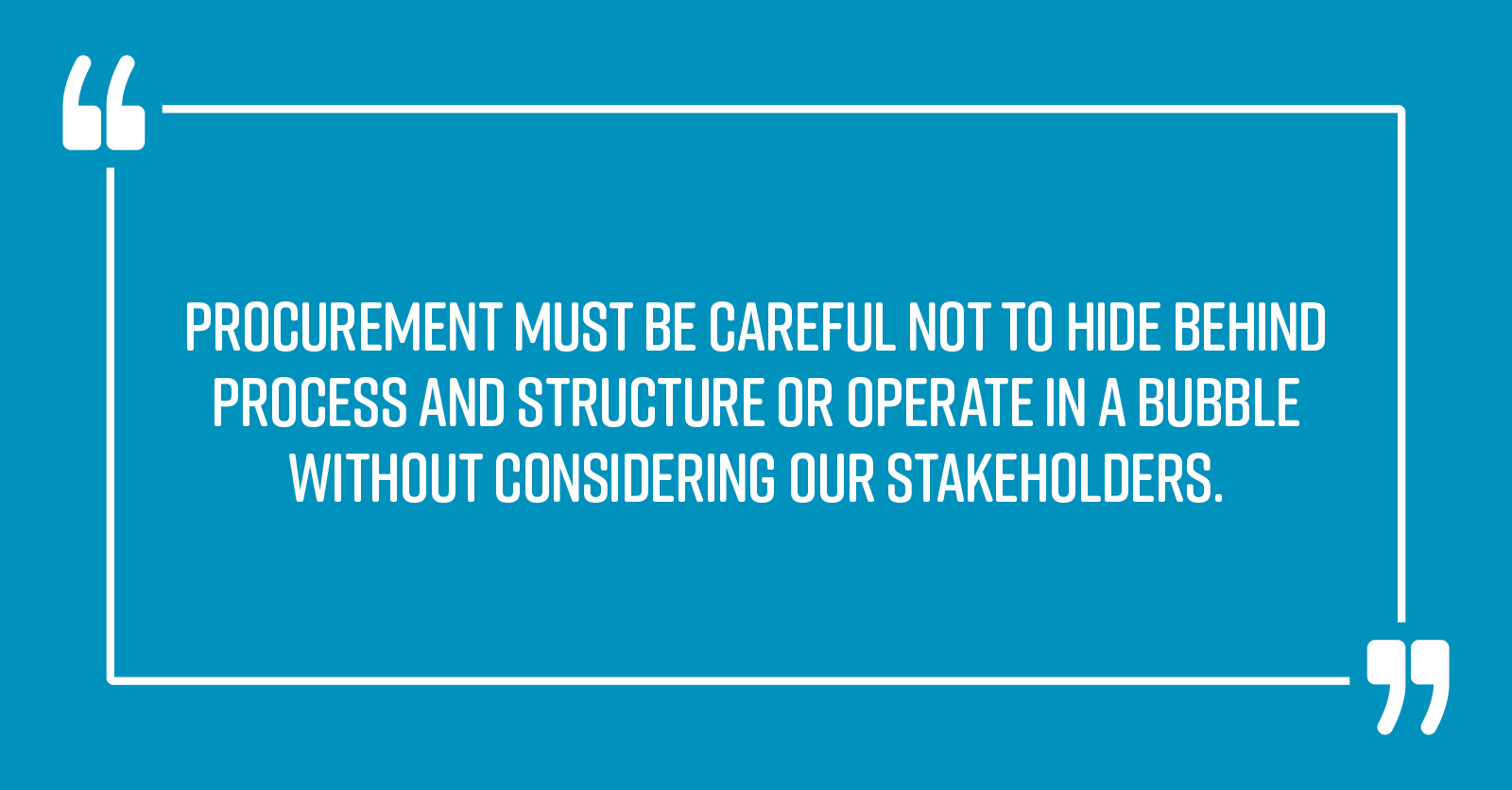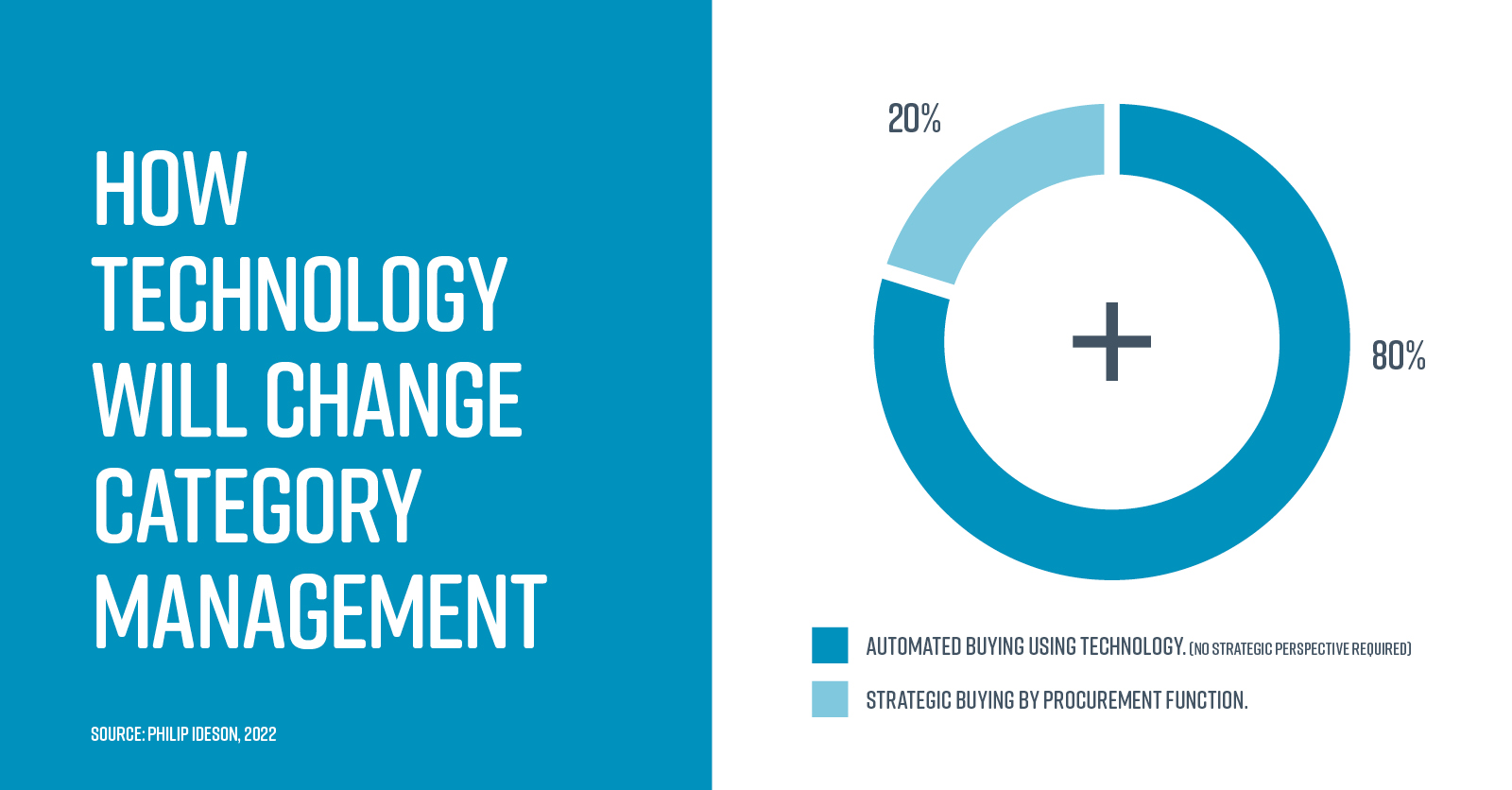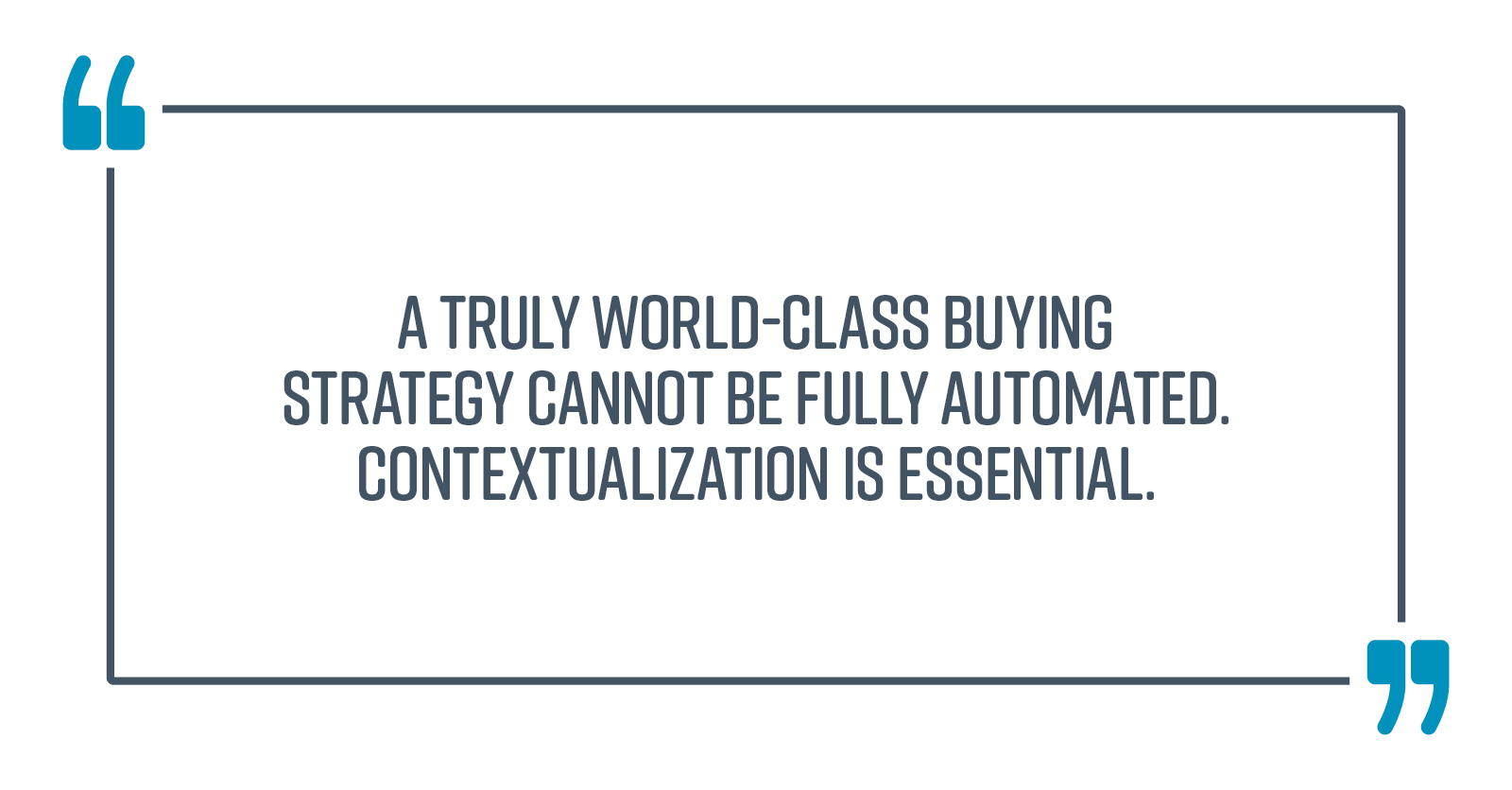Philip Ideson, former procurement delivery leader for Accenture and creator of Art of Procurement, the #1 weekly procurement podcast, explores whether category management remains an essential function for procurement organizations – or not.
Only procurement thinks of products and services as categories, and that is okay. The driving intent behind category management is to help the business determine a more value-oriented buying strategy by segmenting their spend purposefully. The opportunity associated with that approach stood the test of time.
And yet, some procurement organizations are reviewing their category management delivery strategy. Many are asking questions about the right structure, the use of technology, and the role of category managers, but nearly all are rethinking their processes.
Whether procurement is focused on talent, tools, or process, the ultimate goal is to drive value for the business. Having infrastructure to guide the process of gathering information and insights makes it possible for procurement to contextualize them, enabling stakeholders to make more effective business decisions. That’s what category management strategy looks like in practice. Procurement must be careful not to hide behind process and structure or operate in a bubble without considering our stakeholders.

Current environment
Given the current inflationary environment, if you haven’t invested in category management, you will probably find yourself in firefighting mode. A recent survey of the Art of Procurement community found that buyers are receiving a growing number of costs increase requests.
Now is a good time to step back and realize, if we’d thought strategically about this category, done a business continuity plan at category level, and invested in scenario planning related to systemic risks, we would have been better prepared.
Organizations that have considered these issues in advance can look at what’s going on now as an opportunity. After all, this is where they can negotiate deals or push back on requests and realize competitive advantage.
It’s easy to be removed from the day-to-day realities of what it’s like to be a category manager or a buyer or a procurement leader. Let’s face it, everyone’s been pulled from pillar to post over the last 24 months, especially around security of supply.
I’m always reticent to say, ‘Well, procurement should do this,’ because we all have so much going on. I would suggest that thinking more strategically and longer term around category strategies helps procurement in moments like this rather than slowing us down.
Automating category management

There is a tremendous opportunity to digitize and automate most, if not all, data collection: external supply market insights, internal data, perspectives from stakeholders, and other intelligence.
All that insight is great, but what are you going to do with it? While platforms enable procurement to gather this information, we need an expert to contextualize it. Building a category strategy may be a 2 or 4-hour role as opposed to a full-time position. When the analysis is done by experts, full-time employees are freed up to manage relationships between stakeholders and understand stakeholder needs.
We also need to recognize how technology is going to change what category management is. Self-service is the way forward. For the vast majority of things that a business needs to buy, we should devolve buying back into the business. With this spend, procurement cannot add a great deal of strategic value. Management of the remaining 20% will depend on the maturity of the procurement organization.
In my view, a truly world-class buying strategy cannot be fully automated. Contextualization is essential. Organizations that embrace self-service and engage with technology in order to build up procurement capabilities will have the opportunity to keep hold of the 20% and make the buying of it truly strategic. Those that resist change will find themselves in a position where technology will take over much of the spend. Do they want their business leader saying, ‘I found this wonderful new tech that gets rid of you guys and I’m sold because I never liked you anyway?’ Absolutely not; that would be the end of procurement.

Have we got the skills to drive this forward?
It pains me to say this, but the skills within procurement that we all held dear, that we measured ourselves on as the signals of a strong procurement professional, are relatively easy to teach. They’re relatively commoditized skills.
We tend to think that because we have those skills we can do a better job than somebody outside of procurement. The skills that we need are emotional intelligence (EQ), relationship management, and being able to take a step back and take more of a commercial perspective than a procurement perspective. We’ve talked about these skills for a long time, but we are not making progress at scale. People are coming into procurement because they’ve been on the other side of the table. Category experts from outside of procurement are learning the fundamentals. They’re probably more successful because they’re able to build relationships.
Future procurement
Three things come to mind for the future of procurement. The first is that we have to be prepared for the impact of technology. We should ask, “How this is going to help or hinder me?” about every platform and solution. Technology will fundamentally change what procurement is. The technology coming into procurement right now is not new technology; procurement is just a new use case. I would encourage procurement people to think about the implications of technology. You really need to be on top of digitization. I ignored it for a while because I thought technology was a bit complicated but there’s no getting away from it.
Secondly, think about ecosystems. When I talk about these, I think about how we deliver procurement. I see procurement within an organization not as a business function but as a business within a business. We need to show up with insights, a value proposition, and a delivery mechanism that makes our stakeholders think they can’t do without us. How do you take advantage of this ecosystem of service providers? Of subject matter experts? Of data sources? We’ve got to be really specific around the value proposition that we create. ‘One size fits all’ is definitely not going to help us.
Third, from a relational perspective, the skill sets that we need are relational, delivery, program management, and sales. I talked to a CPO of a Fortune 10 or 15 organization a few weeks ago and he said, “When I hire, something that’s a hundred times more important to me than IQ is emotional intelligence.”
Future skill requirements are not going to be about, “Am I a better negotiator than somebody?” The skills that we traditionally considered core procurement capabilities are becoming commoditized and will ultimately be replaced by technology. To future-proof their careers, procurement professionals must become conductors, orchestrating the diverse and changing needs of their business partners with supply market capabilities.

